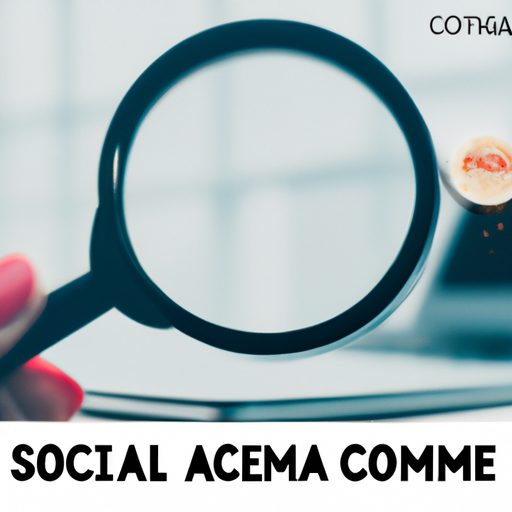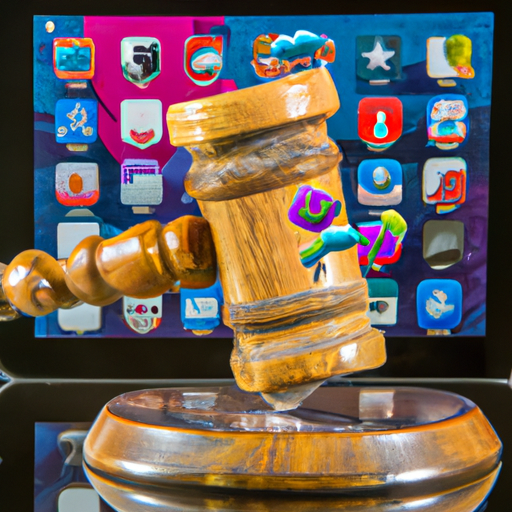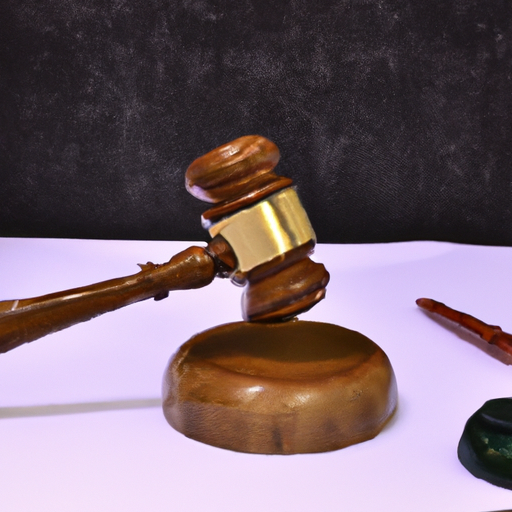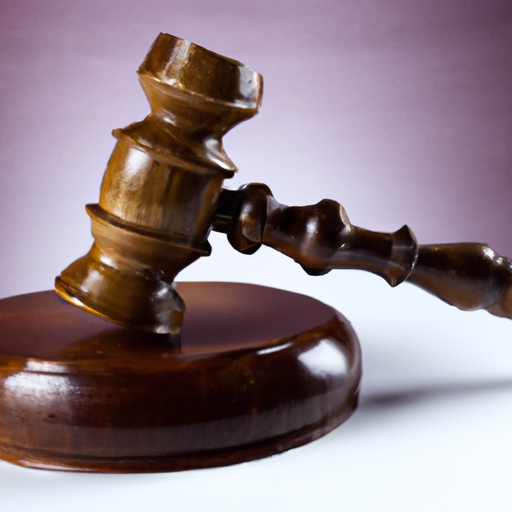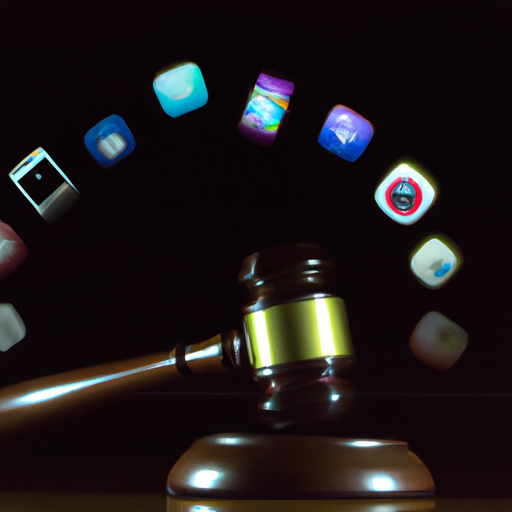In today’s digital age, maintaining an active social media presence has become a crucial aspect of any business’s marketing strategy. However, with the increasingly strict regulations surrounding the use of social media platforms, ensuring compliance can be a daunting task. That’s where Social Media Claims Compliance Consultants come in. As experts in the field, they provide businesses with the necessary guidance and support to navigate the complex landscape of social media compliance. From creating effective policies and procedures to conducting thorough audits, these consultants offer comprehensive solutions to help businesses mitigate the risk of legal issues and protect their reputations. So, if you’re a business owner looking to maximize your social media efforts while staying within the bounds of the law, it’s time to consider reaching out to a Social Media Claims Compliance Consultant.

Understanding Social Media Claims Compliance Consultants
Social media claims compliance consultants are professionals who provide guidance and assistance to businesses in ensuring their compliance with regulations and laws related to social media claims. These consultants specialize in understanding the complex landscape of social media advertising and help businesses navigate the legal and regulatory requirements to avoid any legal consequences and maintain their reputation and trust.
The Importance of Social Media Claims Compliance
In today’s digital age, social media platforms have become powerful tools for businesses to promote their products and services. However, with this power comes the need for strict compliance with regulations and guidelines set by regulatory authorities. Failure to comply with these rules can lead to legal consequences, damage to reputation, and loss of customer trust. That’s where social media claims compliance consultants play a crucial role in ensuring businesses meet the necessary standards.
Benefits of Hiring Social Media Claims Compliance Consultants
Hiring social media claims compliance consultants can bring several benefits to businesses. Firstly, they provide expertise and knowledge of the regulatory landscape, allowing businesses to navigate the complex world of social media advertising with confidence. Consultants also offer risk assessment and analysis, helping businesses identify potential areas of non-compliance and develop strategies to mitigate risks. Additionally, they provide employee training and education, ensuring that everyone in the organization understands the compliance requirements associated with social media claims. Moreover, consultants offer monitoring and audit services to ensure ongoing compliance and help businesses address any potential issues promptly. Lastly, in case of a crisis, social media claims compliance consultants provide crisis management and remediation strategies to protect businesses from further damage and liability.
Services Provided by Social Media Claims Compliance Consultants
Risk Assessment and Analysis
One of the key services provided by social media claims compliance consultants is conducting risk assessments and analysis. They thoroughly assess a business’s social media advertising practices, identifying areas where the company may be at risk of non-compliance. These consultants analyze various factors such as advertising claims, disclosures, endorsements, and testimonials to determine potential compliance gaps and develop strategies to address them.
Development of Compliance Policies and Procedures
To ensure ongoing compliance, social media claims compliance consultants assist businesses in developing robust compliance policies and procedures tailored to their specific industry and regulatory requirements. These policies outline guidelines and best practices that employees should follow when engaging in social media marketing activities. By establishing clear policies, businesses can minimize the risk of non-compliance and ensure consistency in their social media advertising practices.
Employee Training and Education
Social media claims compliance consultants also provide employee training and education programs to educate staff about the legal and regulatory requirements associated with social media claims compliance. These training sessions cover topics such as advertising laws, disclosure requirements, intellectual property protection, and proper use of testimonials and endorsements. By ensuring that employees are well-informed, businesses can minimize the likelihood of unintentional non-compliance and align their social media advertising practices with legal standards.
Monitoring and Audit Services
To ensure ongoing compliance, social media claims compliance consultants offer monitoring and audit services. These consultants monitor a business’s social media platforms to identify any potential compliance issues or instances of non-compliance. By conducting regular audits, consultants help businesses address non-compliance promptly and make necessary corrections to their advertising practices. This proactive approach enables businesses to minimize the risk of legal consequences and maintains compliance with regulations.
Crisis Management and Remediation
In the event of a compliance breach or a social media crisis, social media claims compliance consultants play a vital role in providing crisis management and remediation services. They help businesses develop comprehensive strategies to manage and mitigate the impact of a crisis, ensuring transparency, and effective communication with stakeholders. Additionally, consultants assist in developing remediation plans to address any damage caused to a business’s reputation or trust. By actively addressing crises, businesses can regain control and protect themselves from further liability.

How Social Media Claims Compliance Consultants Ensure Compliance
Ensuring Regulatory Compliance
Social media claims compliance consultants have a deep understanding of the regulatory landscape, including laws, guidelines, and industry standards. They stay up-to-date with any changes or updates in these regulations, ensuring that businesses remain compliant. By working closely with businesses, consultants help them understand and adhere to specific regulatory requirements related to social media claims. This comprehensive knowledge and guidance minimize the risk of non-compliance and allow businesses to operate with confidence.
Adhering to Advertising Laws and Guidelines
Social media advertising is subject to various advertising laws and guidelines to ensure fair and transparent practices. Social media claims compliance consultants assist businesses in understanding and adhering to these laws and guidelines, including requirements for advertising claims, disclosures, endorsements, and testimonials. By ensuring compliance with advertising laws, businesses can protect themselves from legal consequences and maintain the trust of their customers.
Protecting Intellectual Property
Intellectual property protection is a crucial aspect of social media claims compliance. Consultants help businesses identify, protect, and manage their intellectual property rights in the context of social media advertising. They advise businesses on copyright, trademark, and patent issues relevant to their marketing activities. By safeguarding their intellectual property, businesses can prevent unauthorized use or infringement and maintain a competitive advantage.
Mitigating Risk and Liability
Social media claims compliance consultants work closely with businesses to identify and mitigate risks associated with social media advertising. They assess potential risks, such as false or misleading claims, inadequate disclosures, or unauthorized endorsements. Through risk analysis, these consultants develop strategies and procedures to minimize exposure to risk and liability. By proactively addressing and mitigating risks, businesses can avoid legal consequences, protect their reputation, and ensure long-term success.
Why Businesses Need Social Media Claims Compliance Consultants
Avoiding Legal Consequences
The legal landscape surrounding social media claims is complex, and businesses must navigate it carefully to avoid legal consequences. Non-compliance with regulations and laws related to social media claims can lead to lawsuits, fines, and damage to a business’s reputation. Social media claims compliance consultants provide businesses with the knowledge and expertise to ensure compliance, minimizing the risk of legal consequences and protecting their interests.
Maintaining Reputation and Trust
Social media advertising is closely scrutinized by consumers, regulatory authorities, and competitors. Any non-compliance or unethical practices can quickly damage a business’s reputation and erode customer trust. By working with social media claims compliance consultants, businesses can mitigate these risks and maintain a positive image. Consultants help businesses develop compliant advertising practices that align with their values and build trust among their target audience.
Achieving Competitive Advantage
Compliance with social media claims regulations and guidelines can give businesses a competitive edge. By ensuring their advertising practices are transparent, fair, and compliant, businesses can differentiate themselves from competitors who may engage in unethical or non-compliant practices. Social media claims compliance consultants help businesses develop compliant strategies that showcase their integrity and commitment to ethical marketing, giving them a competitive advantage in the market.
Finding the Right Social Media Claims Compliance Consultant
Assessing Experience and Expertise
When selecting a social media claims compliance consultant, it is essential to assess their experience and expertise. Look for consultants who have a proven track record of working with businesses in your industry and have a comprehensive understanding of the regulatory landscape. Experienced consultants bring valuable insights and best practices to ensure effective compliance.
Considering Industry Specialization
Different industries have unique regulatory requirements and challenges when it comes to social media claims compliance. Consider hiring a consultant who specializes in your industry to ensure they have in-depth knowledge and understanding of the specific regulations and guidelines applicable to your business.
Checking Client References and Testimonials
To gauge the consultant’s quality of service and expertise, it is advisable to check client references and testimonials. Reach out to past or current clients to inquire about their experience working with the consultant. Testimonials can provide valuable insight into the consultant’s professionalism, responsiveness, and overall effectiveness.
Evaluating Communication and Reporting
Effective communication and clear reporting are essential when working with a social media claims compliance consultant. Evaluate how the consultant communicates complex regulatory concepts and explanations. Also, assess their reporting practices, including the frequency and comprehensiveness of their reports. A consultant who can clearly communicate compliance requirements and provide regular updates ensures transparency and helps businesses make informed decisions.
Common Challenges and Pitfalls of Social Media Claims Compliance
Lack of Awareness and Understanding
One of the most significant challenges businesses face when it comes to social media claims compliance is a lack of awareness and understanding of the regulations and guidelines. The ever-changing landscape of social media advertising regulations can make it difficult for businesses to stay up-to-date. Social media claims compliance consultants address this challenge by providing ongoing education and training, ensuring that businesses are aware of the latest requirements and best practices.
Keeping Up with Regulatory Changes
Regulatory changes concerning social media claims can happen frequently, requiring businesses to adapt their advertising practices accordingly. Staying informed about these changes can be challenging, especially for businesses focused on day-to-day operations. Social media claims compliance consultants specialize in monitoring and understanding regulatory changes, allowing businesses to stay compliant without falling behind.
Balancing Compliance and Marketing Objectives
Striking a balance between compliance and marketing objectives can be a challenge. Marketing teams may be focused on creating attention-grabbing and persuasive content, while compliance requirements often prioritize accuracy, transparency, and fair practices. Social media claims compliance consultants help businesses navigate this challenge by developing compliant strategies that align with marketing objectives, ensuring both legal compliance and effective marketing campaigns.

Costs Associated with Hiring Social Media Claims Compliance Consultants
Consulting Fees and Pricing Models
The costs associated with hiring social media claims compliance consultants can vary depending on several factors. Some consultants charge an hourly rate, while others offer fixed project fees. The complexity of a business’s advertising practices and the level of assistance required also impact the overall cost. It is essential to have a clear understanding of the consultant’s fees and pricing models before entering into an agreement.
Return on Investment
While hiring social media claims compliance consultants involves an investment, the potential return on investment can be significant. By ensuring compliance and mitigating the risk of legal consequences, businesses can protect their revenue and reputation. Moreover, compliance with social media claims regulations can result in increased customer trust, improved brand image, and ultimately, higher sales and profitability.
Factors Influencing Cost
Several factors can influence the cost of hiring social media claims compliance consultants. These include the size and complexity of a business’s advertising practices, the extent of ongoing monitoring and audit services required, and the level of customization needed for compliance policies and training programs. The consultant’s level of experience and reputation may also impact the cost. It’s important to consider these factors when assessing the overall cost of hiring a social media claims compliance consultant.
FAQs on Social Media Claims Compliance Consultants
What is the role of a social media claims compliance consultant?
The role of a social media claims compliance consultant is to assist businesses in ensuring compliance with regulations and laws related to social media claims. They provide guidance, assess risks, develop compliance policies and procedures, offer employee training, monitor compliance, provide crisis management, and help businesses mitigate risks and liabilities.
Do I need a social media claims compliance consultant for my business?
If your business engages in social media advertising, it is highly recommended to hire a social media claims compliance consultant. Their expertise and knowledge of the regulatory landscape can help you navigate the complexities of social media claims compliance, avoid legal consequences, and maintain your reputation and trust.
How do social media claims compliance consultants help with risk management?
Social media claims compliance consultants play a crucial role in risk management. They assess potential risks associated with social media advertising, develop strategies to mitigate those risks, and help businesses address compliance issues promptly. By proactively managing risks, consultants help businesses avoid legal consequences, protect their reputation, and operate ethically.
What industries can benefit from social media claims compliance consultants?
Social media claims compliance consultants can benefit a wide range of industries that engage in social media advertising. These industries may include healthcare, pharmaceuticals, food and beverages, finance, beauty and skincare, consumer goods, and technology. Regardless of the industry, any business that uses social media platforms for advertising can benefit from their expertise.
What should I look for in a social media claims compliance consultant?
When choosing a social media claims compliance consultant, it is important to assess their experience and expertise, consider their industry specialization, check client references and testimonials, and evaluate their communication and reporting practices. A consultant with a proven track record, industry knowledge, and effective communication skills will be better equipped to help your business achieve compliance and mitigate risks.
Conclusion
Social media claims compliance is a critical aspect of modern advertising for businesses. Hiring social media claims compliance consultants can bring numerous benefits, including ensuring regulatory compliance, adhering to advertising laws and guidelines, protecting intellectual property, and mitigating risk and liability. With the complex landscape of social media advertising regulations, businesses need the expertise of consultants to avoid legal consequences, maintain their reputation and trust, and achieve a competitive advantage. When selecting a consultant, businesses should assess experience, consider industry specialization, check client references, and evaluate communication and reporting practices. By investing in social media claims compliance consultants, businesses can navigate the ever-changing social media landscape with confidence and minimize the risk of non-compliance.
